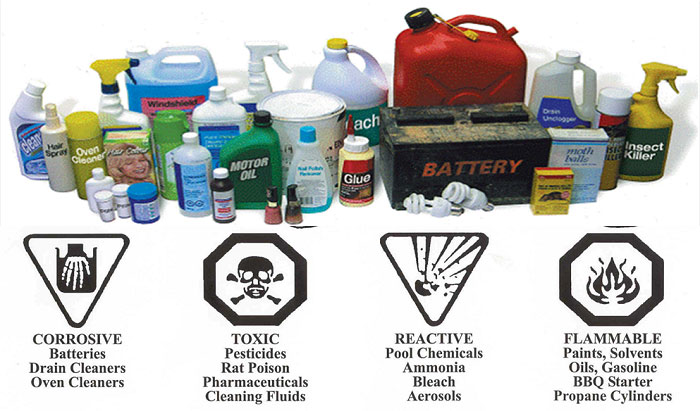✓ Fast delivery and pickup
✓ Customer friendly staff
✓ Serving the Daytona Beach area
✓ Call (386) 703-4219 today!
✓ Satisfaction guaranteed
Proper disposal of hazardous materials is an essential aspect of environmental protection and public health. Hazardous materials encompass a wide range of substances, including chemicals, radioactive materials, flammable liquids, and biological waste, among others. These materials can pose significant risks to ecosystems, wildlife, and human beings if not handled and disposed of correctly.

The Importance of Proper Disposal
Environmental Impact
Improper disposal of hazardous materials can have severe consequences for the environment. These substances can contaminate soil, water bodies, and air, leading to the degradation of ecosystems and the loss of biodiversity. Chemicals that seep into the ground can infiltrate groundwater, affecting drinking water sources and posing long-term risks to human health. Proper disposal ensures that hazardous materials are isolated from the environment, minimizing the potential for pollution and its associated ecological harm.
Public Health
Hazardous materials can pose significant risks to human health if not disposed of correctly. Exposure to these substances through inhalation, ingestion, or direct contact can result in acute or chronic illnesses, ranging from respiratory problems to cancers. Proper disposal methods help prevent accidental exposure to hazardous materials, safeguarding the health of individuals and communities. Additionally, when hazardous materials are properly disposed of, they do not end up in landfills or incinerators, reducing the release of harmful emissions that can pollute the air and affect public health.
Consequences of Improper Disposal
Soil and Water Contamination
Improper disposal of hazardous materials can lead to soil and water contamination. When hazardous substances are dumped or leach into the ground, they can seep into underground water sources or be absorbed by plants, ultimately entering the food chain. Contaminated soil can impair agricultural productivity and render land unusable for extended periods, impacting local economies and livelihoods.
Fire and Explosion Risks
Some hazardous materials are highly flammable or reactive, presenting the risk of fire or explosions if mishandled or improperly stored. These incidents can cause severe injuries, property damage, and even loss of life. Proper disposal procedures, such as using designated storage containers and ensuring compatibility of materials, mitigate these risks, enhancing safety for workers, communities, and emergency responders.
Strategies for Proper Disposal
Hazardous Waste Classification and Labeling
Accurate classification and labeling of hazardous materials are essential for proper disposal. Governments and regulatory bodies have established guidelines and frameworks to categorize hazardous waste based on its properties, potential risks, and appropriate disposal methods. Clear labeling ensures that waste handlers, transporters, and disposal facilities are aware of the hazards involved, enabling them to handle and dispose of materials appropriately.
Waste Minimization and Recycling
Minimizing the generation of hazardous waste should be a priority. Industries and individuals can adopt practices that reduce the use of hazardous materials and find alternatives that are less harmful to the environment. Additionally, recycling and reusing certain hazardous materials can prevent them from entering the waste stream and minimize the need for disposal. Proper recycling processes ensure that hazardous materials are treated and transformed into reusable products, reducing the overall environmental impact.
Secure Storage and Transportation
Safe storage and transportation of hazardous materials are crucial to prevent accidents and spills. Hazardous substances should be stored in appropriate containers that are leak-proof, resistant to corrosion, and designed to withstand the specific hazards of the materials. Moreover, proper labeling and segregation of different types of hazardous waste minimize the risk of cross-contamination. During transportation, strict adherence to regulations, including the use of specialized vehicles and trained drivers, ensures that hazardous materials are transported securely, reducing the likelihood of spills or leaks.
By engaging the services of Daytona Dumpster Rental HQ, individuals and businesses in the Daytona area can ensure that hazardous materials are handled and disposed of in an environmentally responsible and legally compliant manner. Their commitment to the proper disposal of hazardous materials demonstrates their dedication to protecting the local environment, public health, and the well-being of the community.
✓ Fast delivery and pickup
✓ Customer friendly staff
✓ Serving the Daytona Beach area
✓ Call (386) 703-4219 today!
✓ Satisfaction guaranteed
